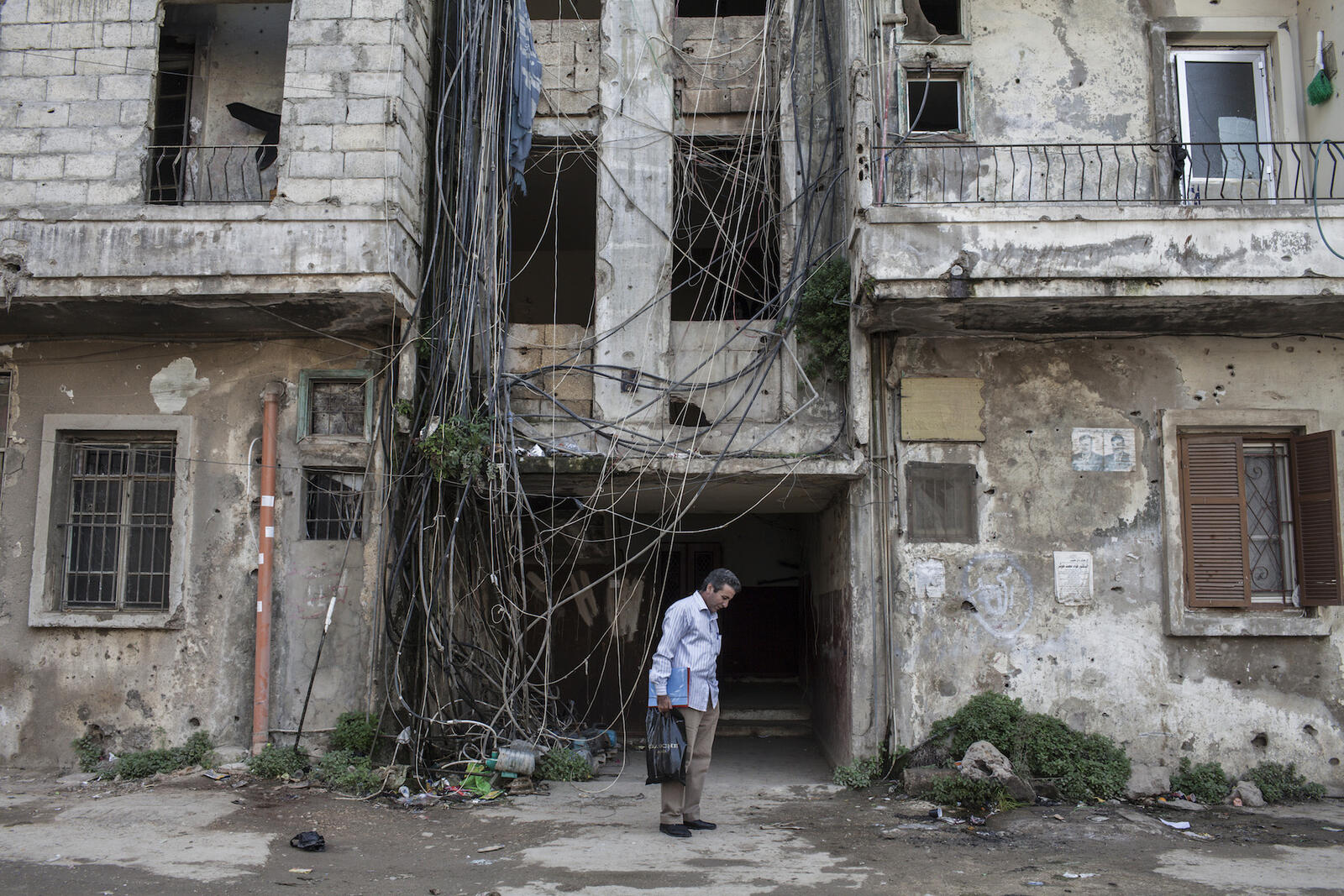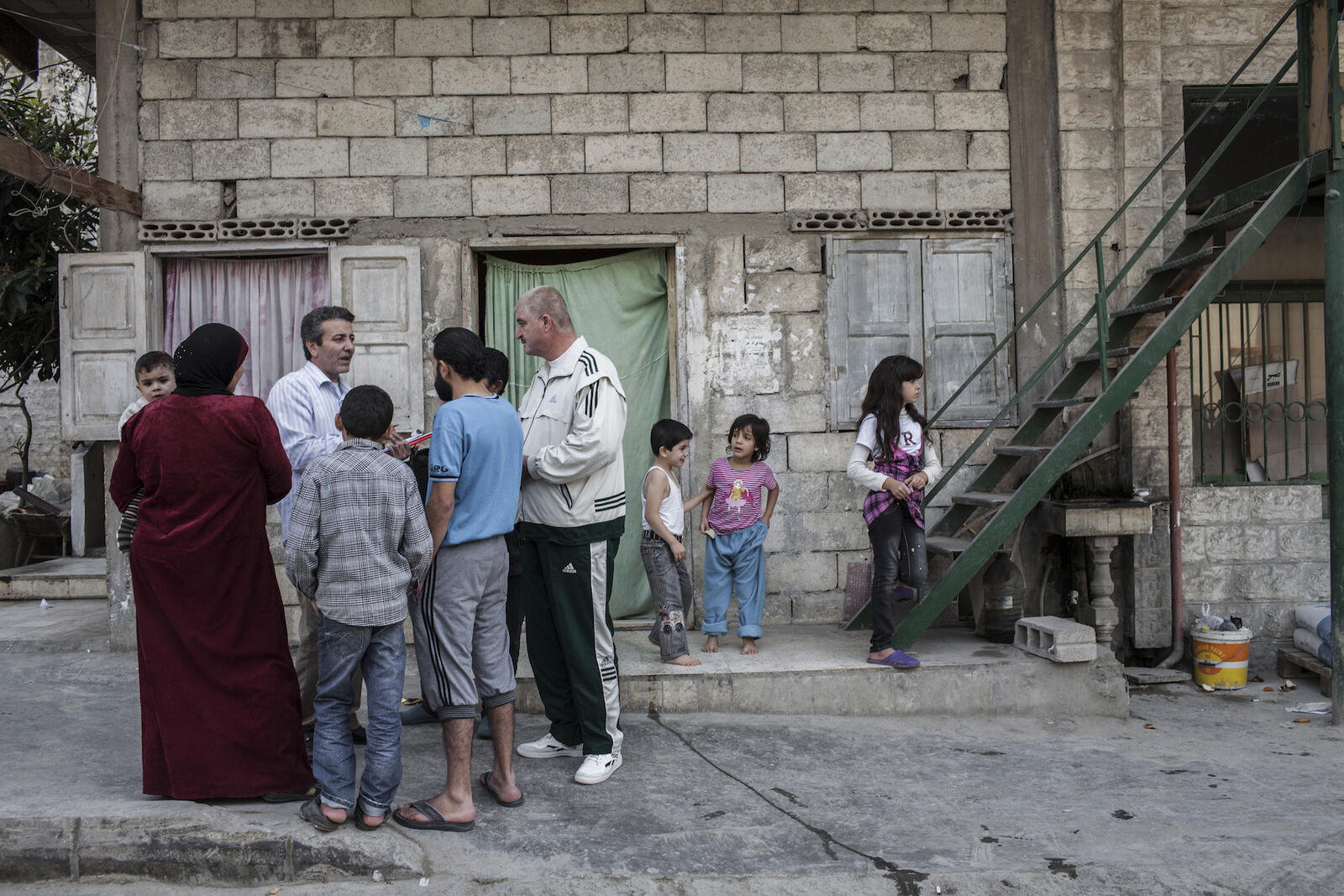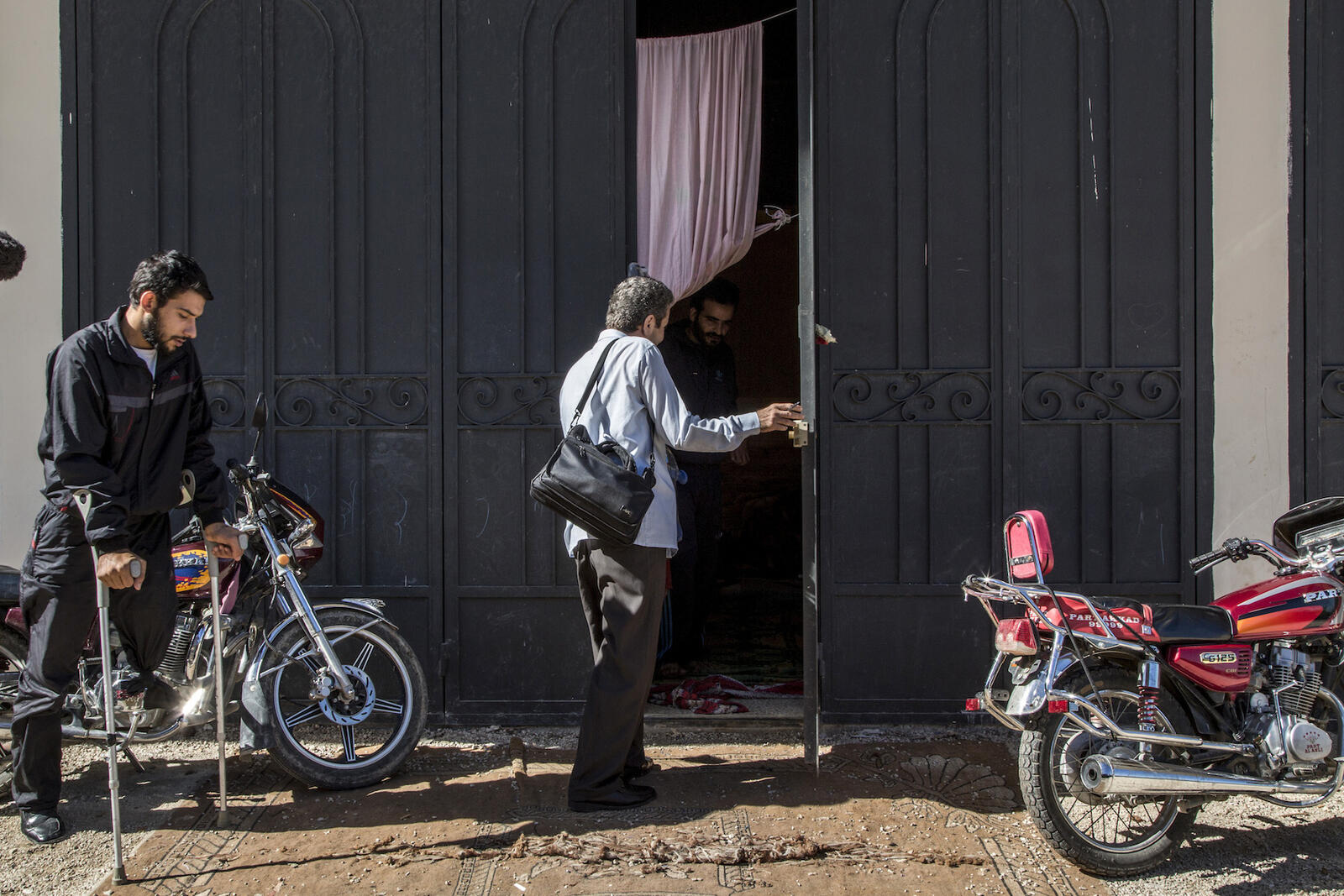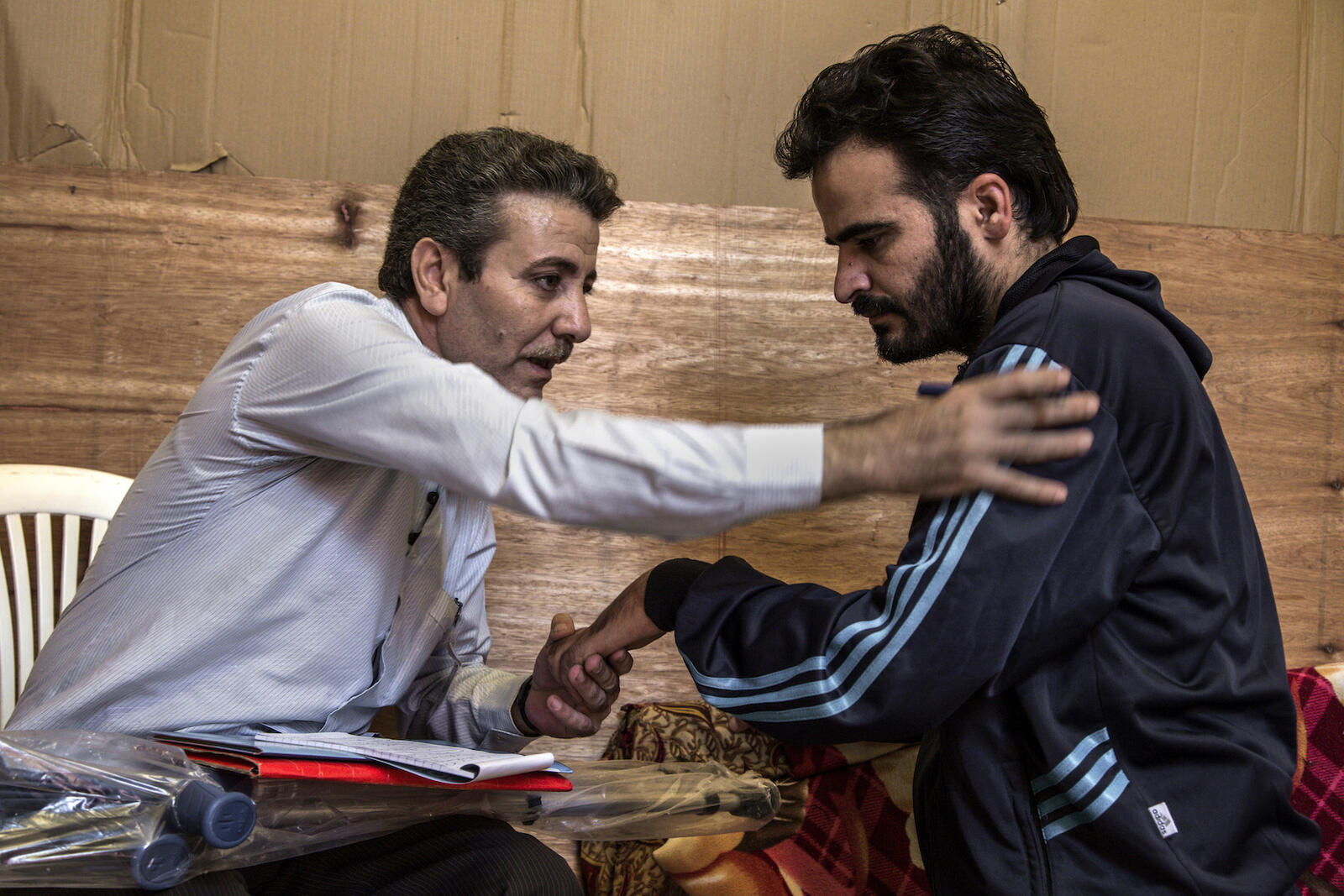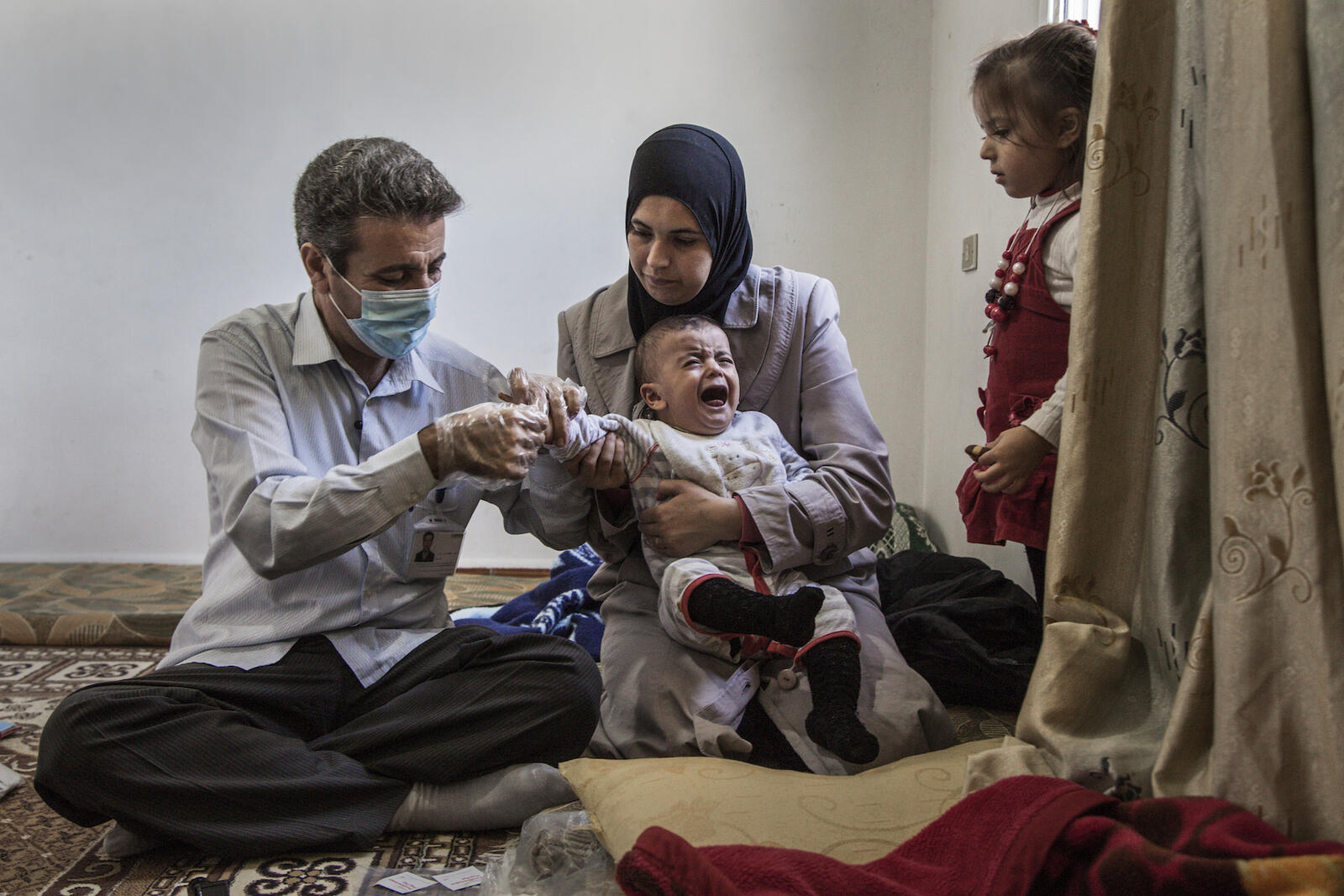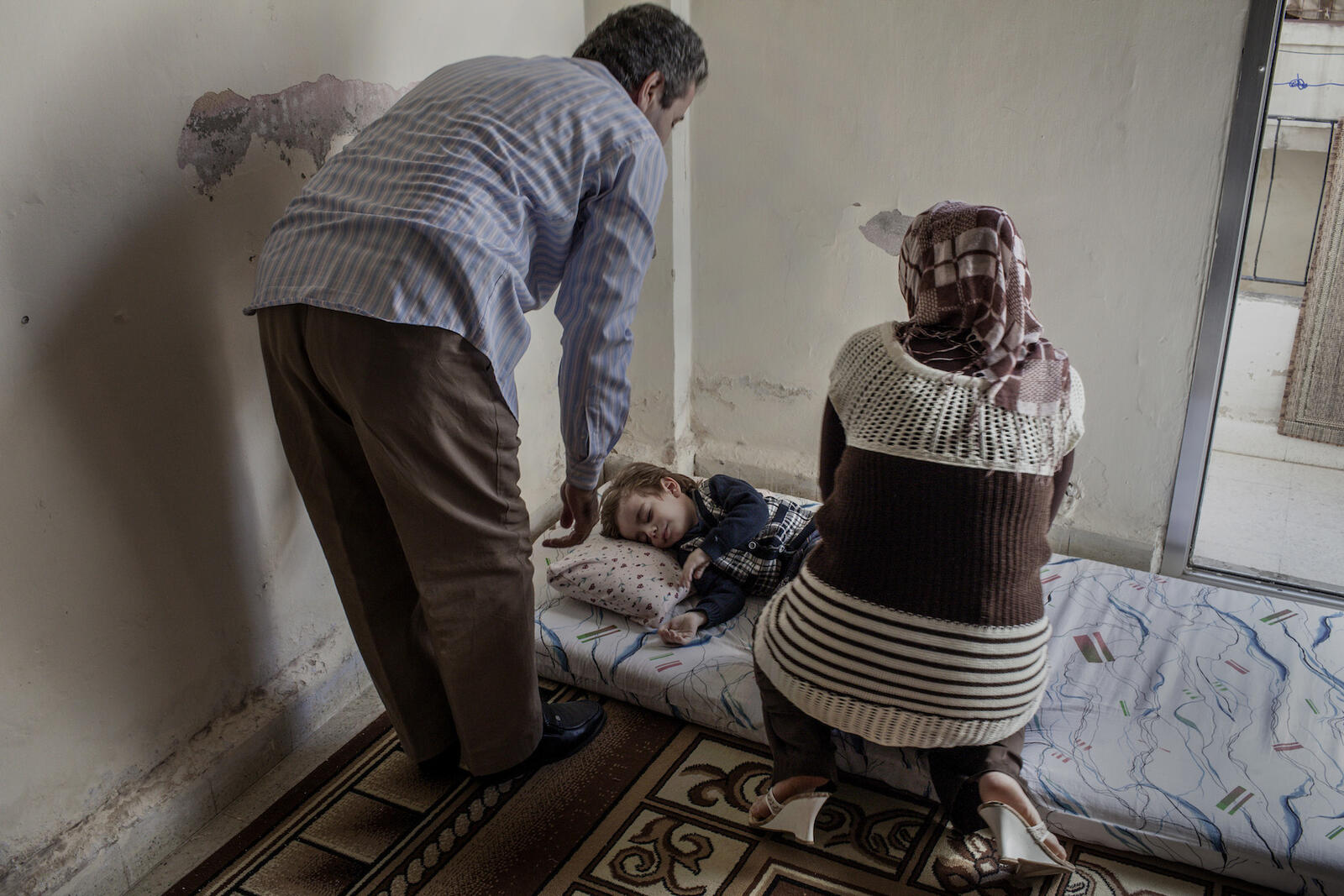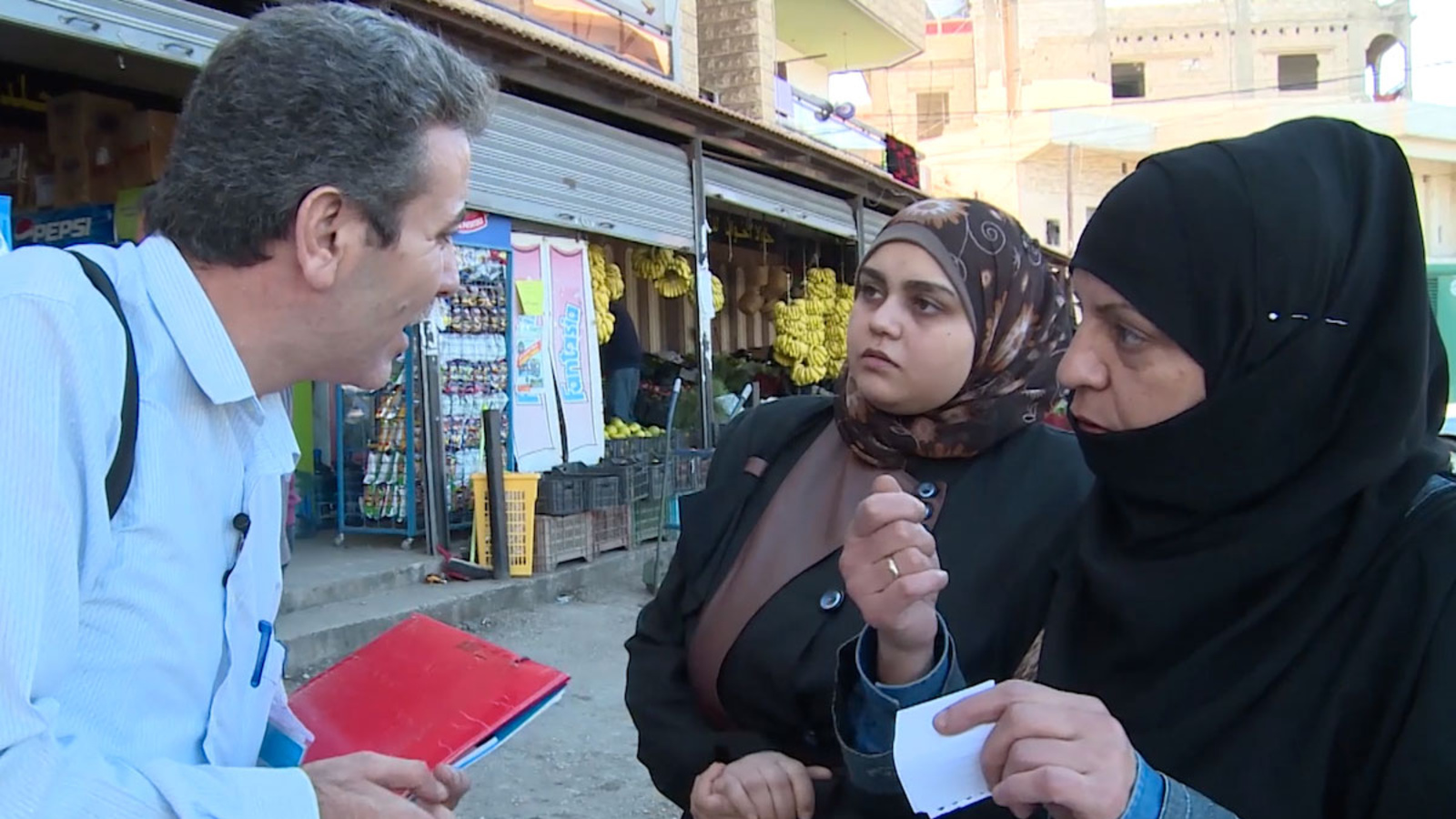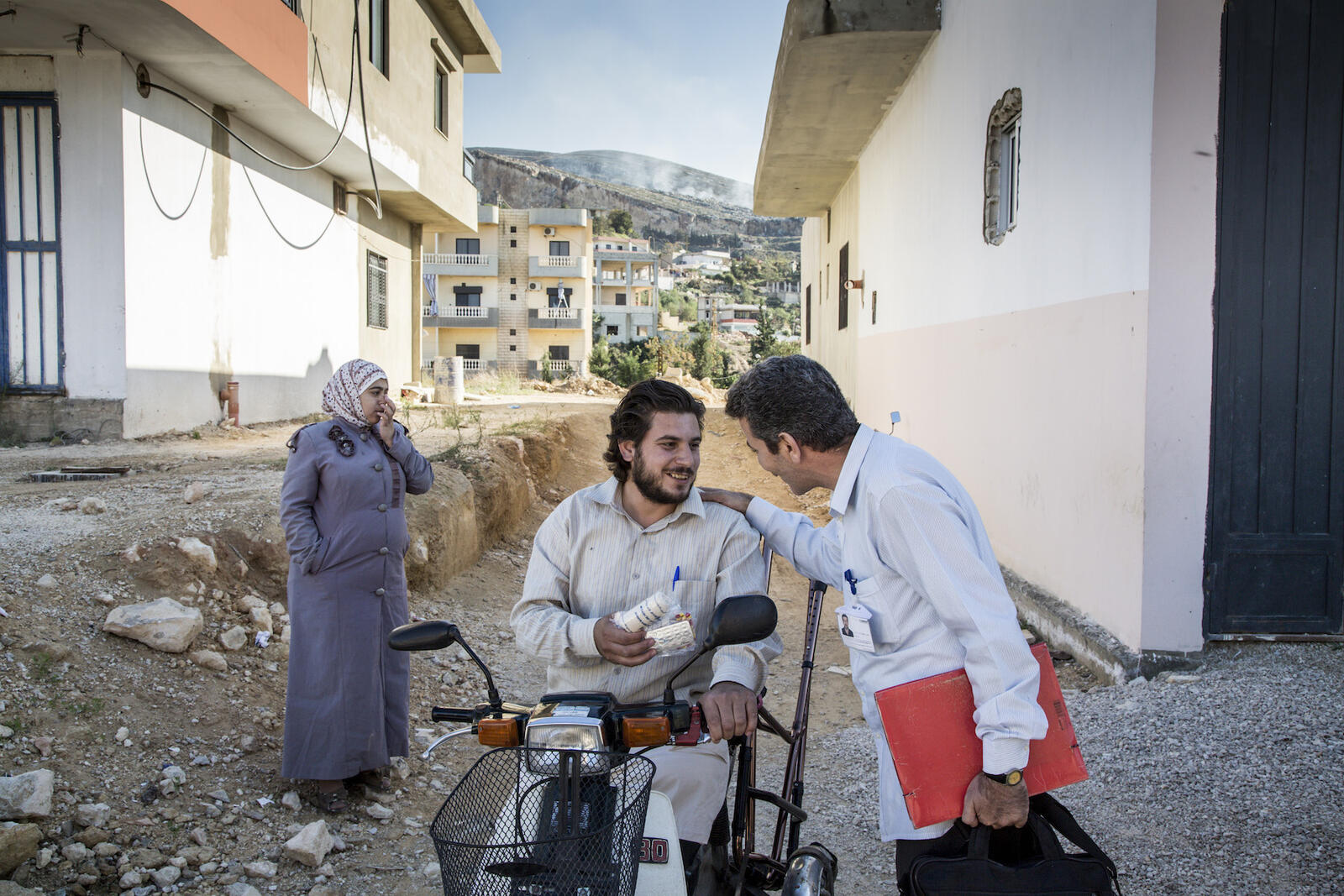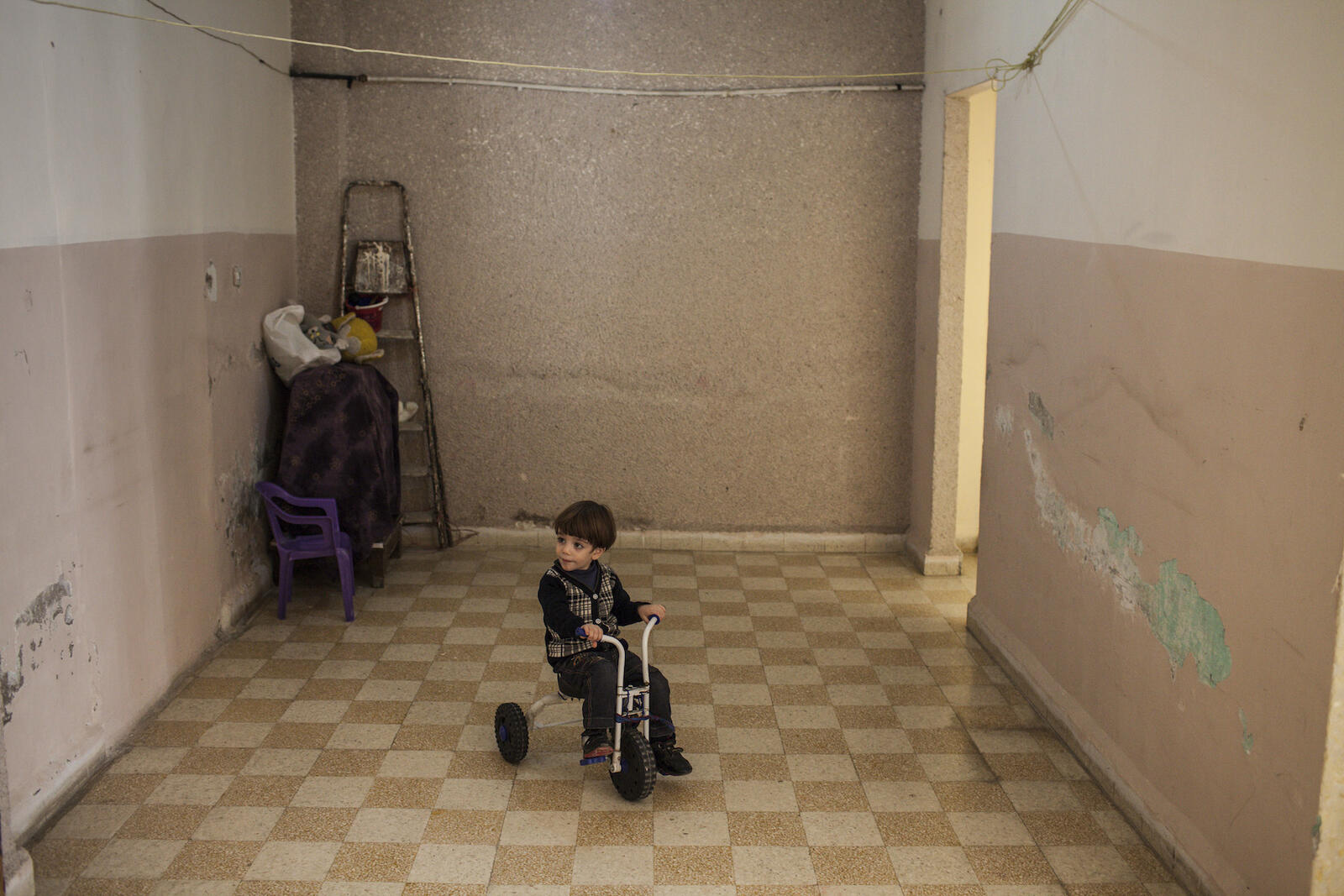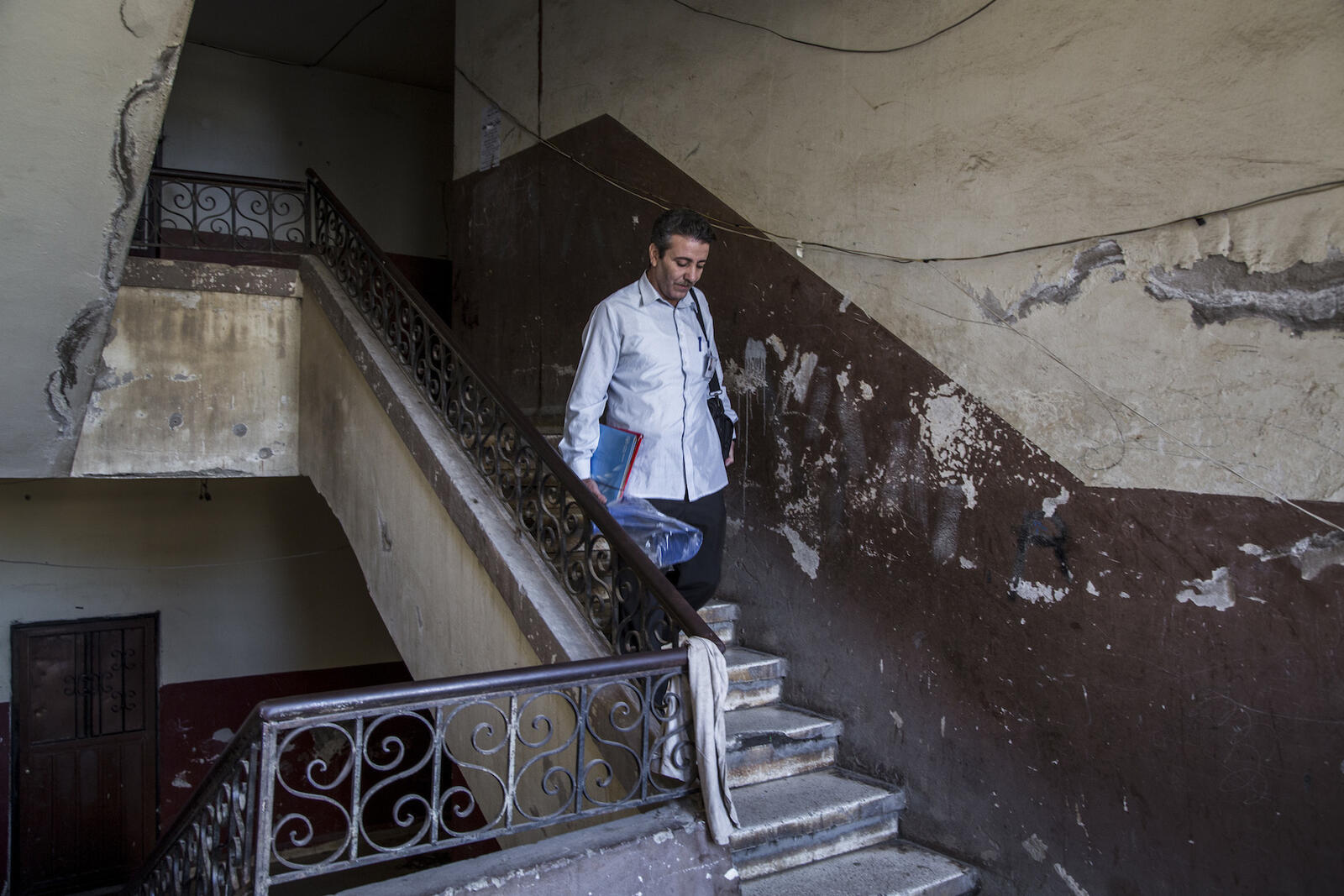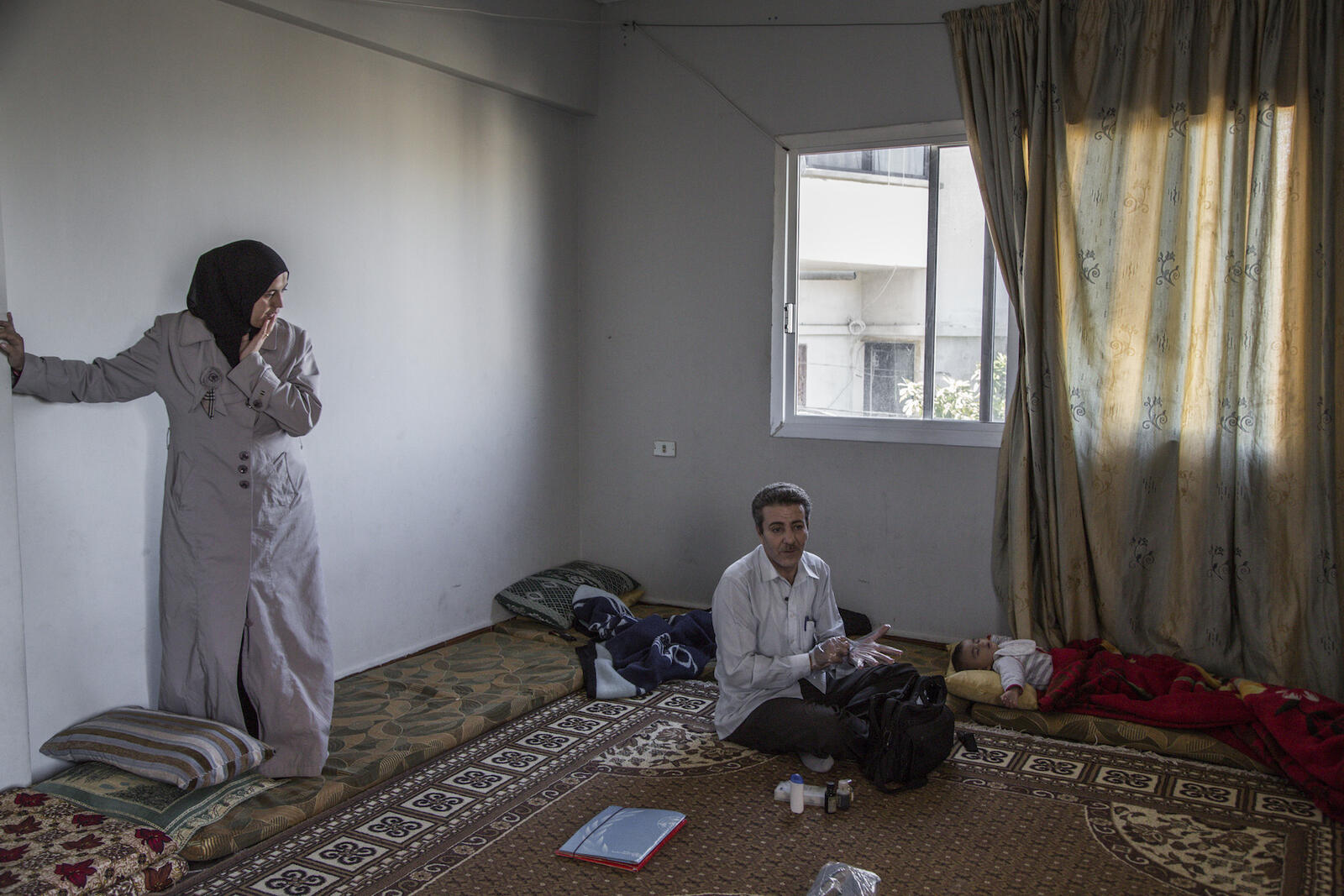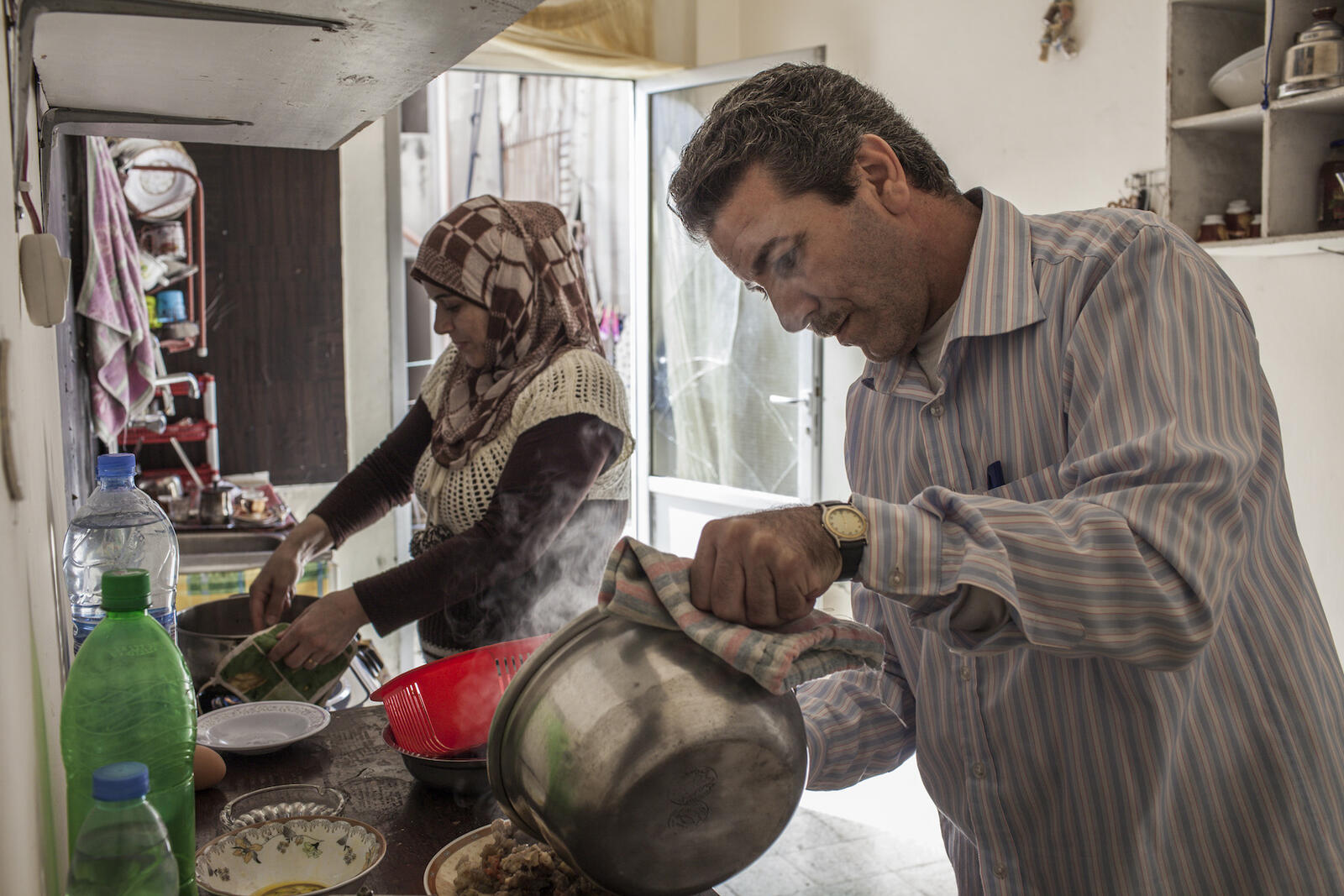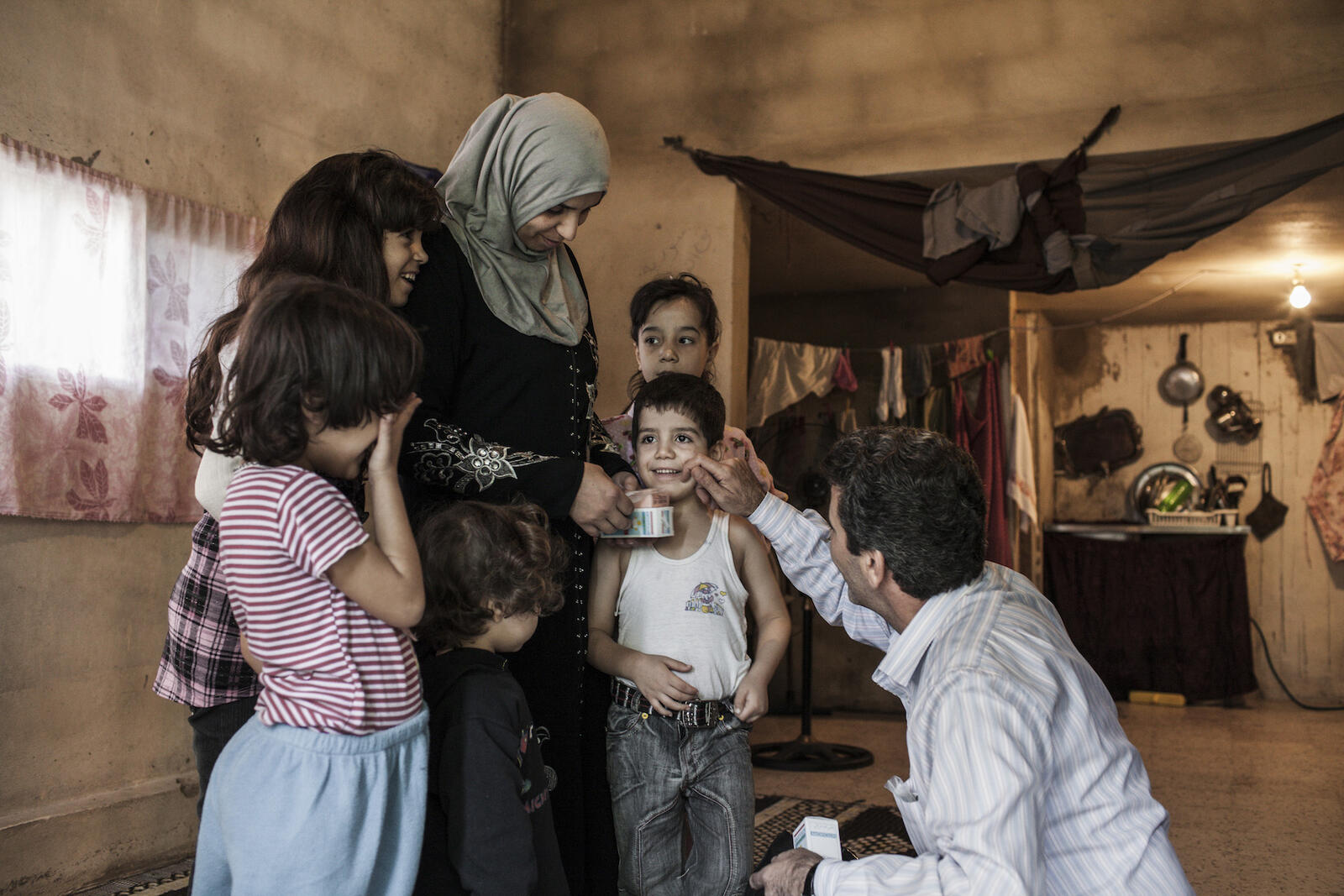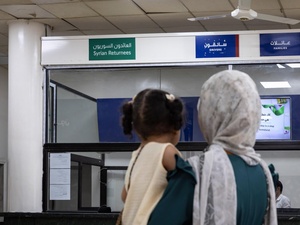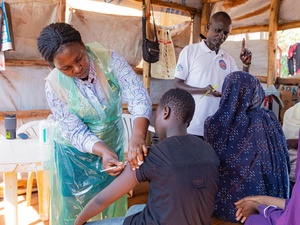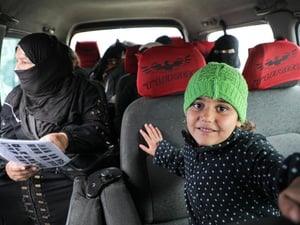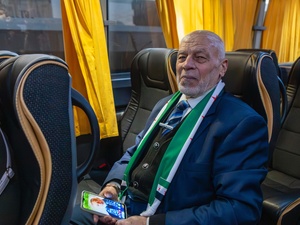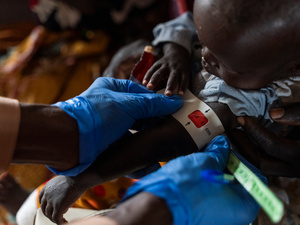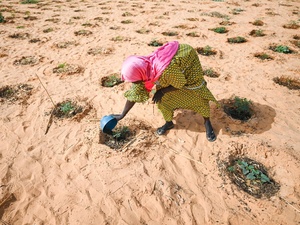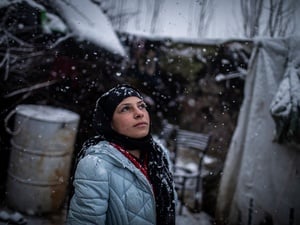A Natural Humanitarian
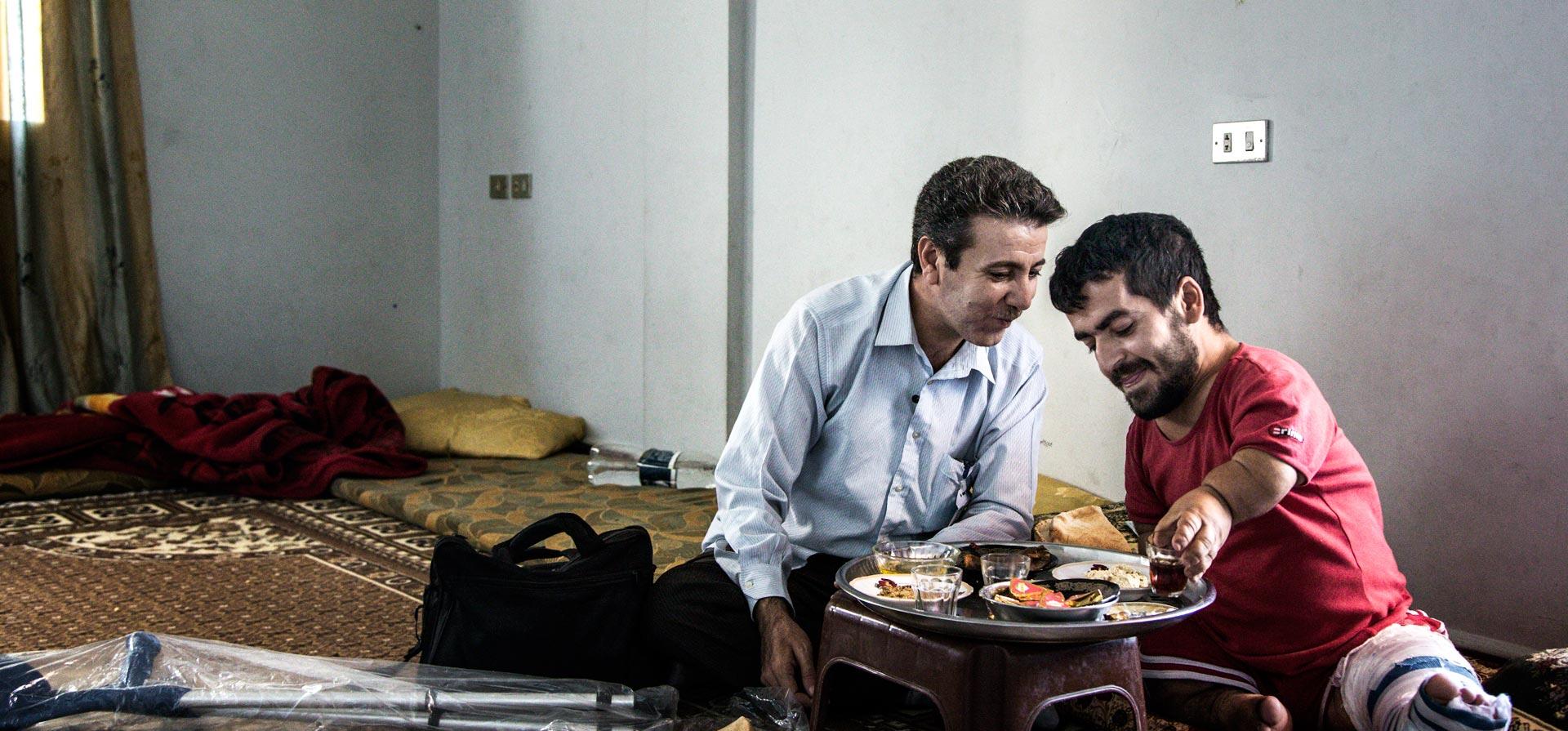
A Natural Humanitarian
When street violence spread through the Syrian city of Idlib three years ago, most residents shuttered their windows and stayed home while the fighting raged outside. Dr. Ahmed was not among them. Instead, he ventured out to tend to the wounded.
The 45-year-old dermatologist and plant specialist cauterized flesh wounds (in one case using a barbecue skewer heated on a gas flame), reset broken bones and rescued children separated from their parents. "When you see another human being lying in the street, you have to help," he says.
Today, Ahmed is still helping the needy, but from the sidelines rather than the thick of the Syrian conflict. He is a refugee volunteer for UNHCR, one of more than 430 in Lebanon who receive travel and communication expenses to visit neighbourhoods and settlements where they provide fellow refugees with practical information and a helping hand. Ahmed and his family fled to Lebanon in 2011 and he has been working as a volunteer since earlier this year.
"When you see another human being lying in the street, you have to help," he says.
The needs are overwhelming. In Lebanon alone, some 1.1 million refugees are registered with UNHCR. They are spread out across mountainous terrain and in hard-to-reach urban neighbourhoods with poor roads and limited communications, not in centralized camps. Just locating them can be a challenge. Many arrive in Lebanon with little money and no knowledge about how to get essential services. Volunteers like Ahmed use their contacts to find those most in need and advise them on what help is available through the government, UNHCR and its partner aid agencies.
Ahmed is a natural humanitarian. In Lebanon, he is not permitted to practice medicine without a Lebanese license. But when UNHCR approached him to get the word out to new arrivals about how to get medical assistance, he leapt at the chance. The work "has my name engraved on it," he says over tea in his sparsely furnished flat atop a bullet-scarred building in Tripoli. "When I see suffering and I can offer a helping hand . . . it's an amazing feeling."
Does he miss practicing dermatology? "I am practicing being human," he says.
Recently, in the course of just one morning, he helped track down a physiotherapist for a man whose arm was paralyzed by a bullet wound in Homs, retrieved a small bag of blood medication for an elderly stroke victim too weak to get to the pharmacy on his own, and offered advice and a sympathetic ear to the mother of three ailing children.
Back in Syria, like most doctors in disputed areas, Ahmed was unable to open his clinic or work in the hospitals. But he frequently went out to care for the wounded. It was dangerous work.
Once, when a funeral procession turned violent, he was kneeling with his hand on the wound of a man who had been shot in the gut – only to see a second bullet strike the man in the head, killing him.
On another occasion, a four-year-old girl ran to him after she lost sight of her parents. The two huddled in a doorway for eight hours as the fighting erupted around them. Finally, Ahmed spotted the mother and tried to reunite her with her child, only to watch horrified as she was shot and killed by a sniper bullet in front of him. He later found the father and was able to return the child.
After several months surviving in the city, Ahmed got a warning call from someone whose wound he had treated in the street. His name was on a list of those to be detained. He and his wife, who was pregnant at the time, decided it was time to flee.
Life is less dangerous in Lebanon, but not without difficulty. Ahmed lives in a part of Tripoli that regularly sees outbursts of sectarian violence. The concrete walls of his neighbourhood are badly pockmarked from gunfire, and the building where he and his wife live is surrounded by military checkpoints. He has been detained on at least one occasion by wary soldiers uneasy about anyone moving around freely. "It's not easy to leave the neighbourhood, let alone cross the city," he says.
Does he miss practicing dermatology? "I am practicing being human," he says.
Ahmed said he will stay in Lebanon for as long as the war in Syria lasts. However, he and his wife badly miss the orchards and green fields of his native Idlib, an agricultural centre in the north-western part of the country, near the border with Turkey.
He had visited Lebanon before the war, mainly to research the medicinal uses of plants that grow in the high mountains – one of his passions – and says he is content to be playing a meaningful role despite the hardship of life here. His biggest worry is for the next generation, including his son, Elias, who was born here. "I pray that they will not be drawn into the cycle of reprisal and revenge."
For now, Ahmed will do what he can to make a difference for. "Thank God for him," exclaims Huda, a mother of six in Tripoli, after Ahmed's visit one recent winter afternoon. "He has come to help us."


